Vinegar is a solution of dilute acetic acid, which may contain various flavors, and organic compounds based on the source ingredients and the degree of processing. It is made from a dual fermentation process resulting in a mixture of 5 to 20% acetic acid by volume.
It is highly valued for its numerous culinary, medicinal, and general benefits. Best of all, it is affordable enough for most people to have at least one bottle tucked away in a cupboard.
However, many people overlook the many possible uses of vinegar in daily life, some of which can be life-changing.
This article will look at some fantastic but uncommon ways to use vinegar in the home and garden. I’m sure you know of a few, some might be new, but all will be useful.
Let’s dive in!
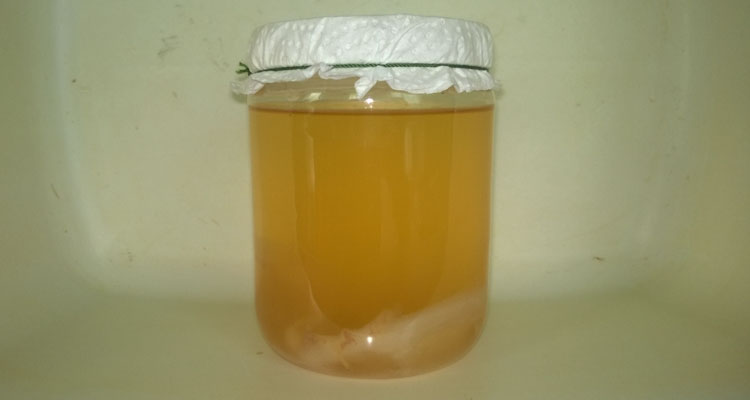
See Also: How To Make Vinegar At Home In 7 Easy Steps (With Pictures)
1. Vinegar As A Window Cleaner
Vinegar is effective at cleaning glass, leaving it shiny and streak-free. It can be used in place of alcohol-based glass cleaners.
You should use white vinegar to clean glass since all solids have already been removed, limiting the chances of unnecessary particles being left behind.
The acid content of vinegar is perfect for removing grease and oil, which tend to trap dust onto the glass, resulting in a dirty look.
You can dilute vinegar using water in a ratio of 1:10 or one cup of vinegar to ten cups of water. However, you can also make a more elaborate concoction using vinegar, dish soap, and water.
While I appreciate the fantastic solutions, I prefer the simple vinegar-water mix. Ensure that the cloth you use is clean and doesn’t drop lint or other particles.
2. Vinegar Fruit And Vegetable Wash
Studies indicate that vinegar reduces bacterial contamination in fresh fruits and vegetables. It can extend the shelf-life of fresh produce, especially when coupled with proper food handling and storage procedures.
Mix one part distilled white vinegar with two parts water to make an effective wash for leafy vegetables. However, after a brief soak in this solution, the vegetables must be washed with clean water, then air-dried before storing.
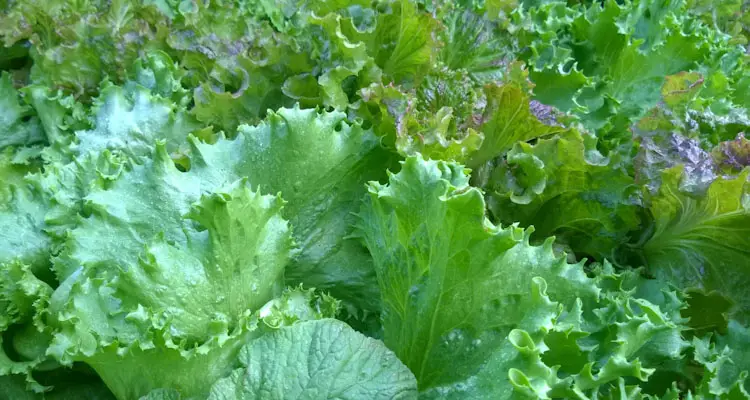
While vinegar can reduce bacterial contamination, it is best to remove dirt from fruit and wash them only when about to be used. This ensures the freshest, safest produce possible.
Note: Washing certain fruits before storage can shorten their shelf-life tremendously. As a result, you should learn more about the best possible conditions to store specific food items, washing them only when necessary.
3. Natural Weed Killer Using Vinegar
Vinegar is strong enough to kill plants. It can be used as a natural weedicide without the harmful effects of harsh chemicals.
However, it cannot tell the difference between a weed and your other crops. So, you must be careful and direct it onto the plant you want to get rid of, avoiding other plants at all costs.
You can use just about any vinegar, with concentrations over 10%, to kill weeds. However, white vinegar is usually used due to its availability.
To use white vinegar as a weed killer, mix 1 liter of vinegar with ¼ tsp Liquids Soap and ¼ tsp salt together. Pour into a small spray bottle and apply directly to the leaves and stems of the plants you wish to get rid of.
You can apply vinegar directly to the plant by itself but risk having it form beads and roll off leaves. However, suppose you combine it with liquid soap. In that case, it coats the plant’s surface in a film allowing the acetic acid to penetrate.
Note: Vinegar is acidic. Be careful when using higher concentrations. Also, overuse of vinegar can affect the soil's PH. As a result, this formulation should be used only when necessary.
4. Clean Coffee Maker With Vinegar
The acetic acid in vinegar is excellent for cleaning stainless steel and removing calcium buildup. You can use vinegar to clean and disinfect coffee makers.
Pour some dilute vinegar into your coffee maker and allow it to flow through it freely. Then rinse thoroughly. If you live in an area with hard water, you may do this twice monthly to limit the buildup of scale in your appliances.
You can also use it as a mild disinfectant and grease remover for your other appliances, including microwaves, dishwashers, and washing machines.
5. Vinegar To Clean And Unclog Drains
Vinegar is an acid, a very corrosive one at that. Thanks to this property, it is effective at dissolving gunk and other greasy buildups. It can unclog most drains when combined with baking soda and hot water.
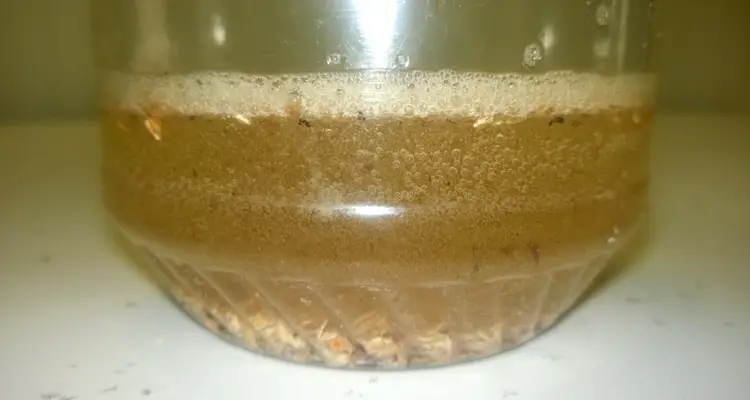
To unclog drains using vinegar, you’ll need. ½ cup baking soda, 1 cup white vinegar, and 6 cups boiling water.
- Remove any noticeable debris that might be blocking the drain hole or strainer.
- Pour two cups of boiling water into the drain and allow to settle for about 5 minutes.
- Pour the baking soda powder directly into the drain pipe. Leave for about 5 minutes.
- Pour vinegar into the drain pipe. Leave for 5 to 20 minutes, allowing the reaction to complete and neutralize.
- Pour 4 cups of boiling water into the drain to wash the debris away. If you have hot water in your tap, open it and allow it to run for about 5 minutes.
This process is time-consuming and should be performed monthly to avoid grease buildup in your pipes. However, it can save you a costly plumber visit.
Note: You must wash away the dissolved grease and other substances to ensure they do not form a foundation for future clogs. You can fill the sink and release it to create additional pressure.
6. To Cut Fresh In Fish And Meats Using Vinegar
Vinegar has multiple culinary applications. However, one of my favorites is to remove the “fresh” from fish, chicken, and other meats. This is especially important when cleaning up after harvesting animals and used during meal preparation.
To remove the “fresh” scent and taste from meats, cover them with water, then add a tablespoon or two of the vinegar of your choice. Allow it to soak for about 5 minutes, then empty. Rinse meat with fresh water and add seasoning.
Alternatively, you can use flour, limes, or lemons to get similar results. Still, vinegar is usually more convenient and always in season. Ensure you do not overdo it, especially when dealing with fish.
You can also use white vinegar to disinfect the utensils, including cutting boards and containers, to remove any unpleasant odors on these surfaces.
7. As A Food Preservative
Vinegar’s acidic nature inhibits the growth of bacteria and other organisms, which causes foods to spoil. This also means that under the right conditions, vinegar is also self-preserving with an almost infinite shelf life.
Many people use vinegar to pickle fresh produce and add to home seasonings, sauces, salads, and dressings. Commercially, vinegar is listed as Acetic Acid on nutrition labels and is added in place of questionable food preservatives.
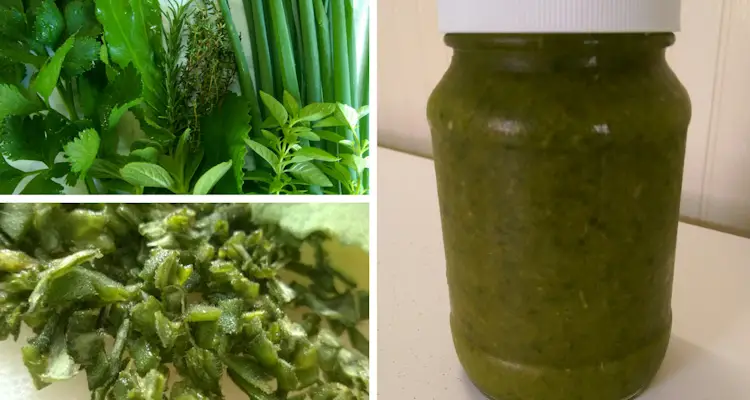
Your choice of vinegar can affect the product’s taste and actual shelf-life. For example, white or refined vinegar will make a more stable preservative but can overlook the flavor.
8. Natural Hair Wash Using Vinegar And Herbs
Apple Cider Vinegar is often added to herbal infusion remedies to stimulate hair growth or control dandruff and itchy scalp.
Vinegar is often added to infusions of rosemary, clove, or other herbs and spices to create the ultimate natural hair tonics and washes. You can find endless versions of these remedies online, with their promoters swearing by their effectiveness.
Many studies suggest that vinegar’s anti-fungal and anti-bacterial properties can help. Still, there isn’t any conclusive data that supports some of the extraordinary claims.
9. Vinegar For Weight Loss And General Health
One of the most popular benefits of vinegar is weight loss. While many people attribute it to Apple Cider Vinegar, studies suggest that most types of vinegar have similar effects.
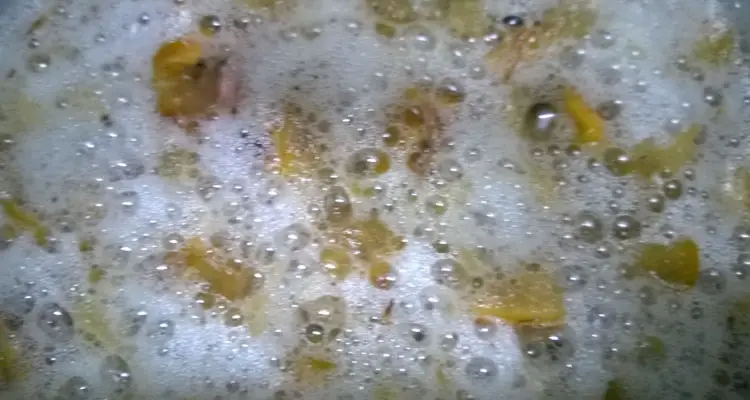
Some people advocate consuming about one tablespoon of diluted Apple Cider Vinegar daily to assist with weight loss, blood sugar, and high blood pressure. However, due to its potent nature, the misuse of vinegar can have adverse effects, especially if someone is already taking medicine to control the same ailment.
As a result, you should seek medical advice before using vinegar for specific medical conditions, especially if you are already undergoing treatment.
10. As Substitute For Harsh Chemicals
White vinegar substitutes harsh cleaning chemicals such as bleach and disinfectant. It effectively removes stains, grease, and mineral buildup on various surfaces.
You can dilute ½ cup white vinegar to 2 cups of water and use it to wipe most surfaces, such as stainless steel, ceramic tile, and glass. However, you should avoid varnish, marble, and other mineral surfaces due to the acidic nature of vinegar.
You can increase or decrease the dilution ratio as you see fit. Ensure you protect your hands and eyes when using the vinegar at full strength or in higher concentration since it irritates or burns sensitive skin and eyes.
Final Thoughts
Vinegar is a versatile solution that can serve multiple purposes in and around the home. It is affordable for the most part and can easily be made from fruit scraps.
Contrary to many claims, most benefits of vinegar are not unique to one particular brand or type.
As a result, feel free to experiment with as many types and uses as you can find. You might replace many otherwise costly, harsh solutions in the process.
Related Questions
Is Vinegar Flammable?
Although vinegar’s active ingredient is acetic acid, which is highly flammable, its low concentration means it is not flammable under normal circumstances. Typically, household vinegar is 5%, with commercial strengths reaching 20%
References
The University Of Maryland Extension. Vinegar: An Alternative To Glyphosate? extension.umd.edu. Accessed July 2022
Colorado State University. Guide To Washing Fresh Produce. [PDF]. Accessed July 2022
Pat The Organizer. How To Unclog A Kitchen Sink Using Baking Soda And Vinegar. [Video] Youtube. Uploaded February 9, 2017
Iowa State University. Vinegar Shelf Life And Safety. extension.iastate.edu. Accessed July 2022
National Library Of Medicine. The anti-bacterial action of vinegar against food-borne pathogenic bacteria, including Escherichia coli O157:H7. pubmed.ncbi.nlm.nih.gov. Accessed July 2022
National Library Of Medicine. Authenticating apple cider vinegar’s home remedy claims: anti-bacterial, anti-fungal, antiviral properties, and cytotoxicity. pubmed.ncbi.nlm.nih.gov. Accessed July 2022
Harvard Health Publishing. Apple cider vinegar diet: Does it really work? health.harvard.edu. Accessed July 2022
National Library Of Medicine. Acetic acid and the skin: a review of vinegar in dermatology. pubmed.ncbi.nlm.nih.gov. Accessed July 2022
